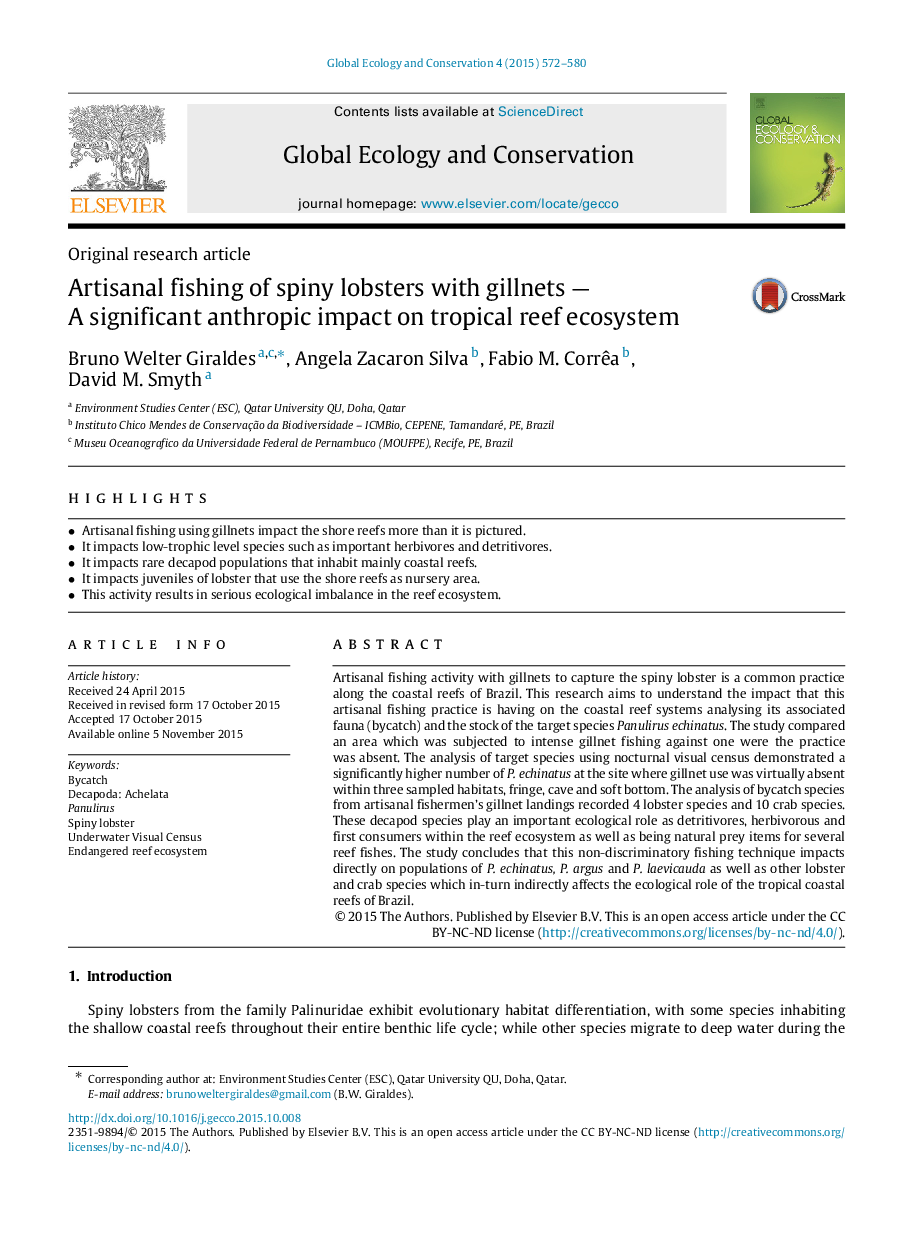| Article ID | Journal | Published Year | Pages | File Type |
|---|---|---|---|---|
| 4379528 | Global Ecology and Conservation | 2015 | 9 Pages |
•Artisanal fishing using gillnets impact the shore reefs more than it is pictured.•It impacts low-trophic level species such as important herbivores and detritivores.•It impacts rare decapod populations that inhabit mainly coastal reefs.•It impacts juveniles of lobster that use the shore reefs as nursery area.•This activity results in serious ecological imbalance in the reef ecosystem.
Artisanal fishing activity with gillnets to capture the spiny lobster is a common practice along the coastal reefs of Brazil. This research aims to understand the impact that this artisanal fishing practice is having on the coastal reef systems analysing its associated fauna (bycatch) and the stock of the target species Panulirus echinatus. The study compared an area which was subjected to intense gillnet fishing against one were the practice was absent. The analysis of target species using nocturnal visual census demonstrated a significantly higher number of P. echinatus at the site where gillnet use was virtually absent within three sampled habitats, fringe, cave and soft bottom. The analysis of bycatch species from artisanal fishermen’s gillnet landings recorded 4 lobster species and 10 crab species. These decapod species play an important ecological role as detritivores, herbivorous and first consumers within the reef ecosystem as well as being natural prey items for several reef fishes. The study concludes that this non-discriminatory fishing technique impacts directly on populations of P. echinatus, P. argus and P. laevicauda as well as other lobster and crab species which in-turn indirectly affects the ecological role of the tropical coastal reefs of Brazil.
